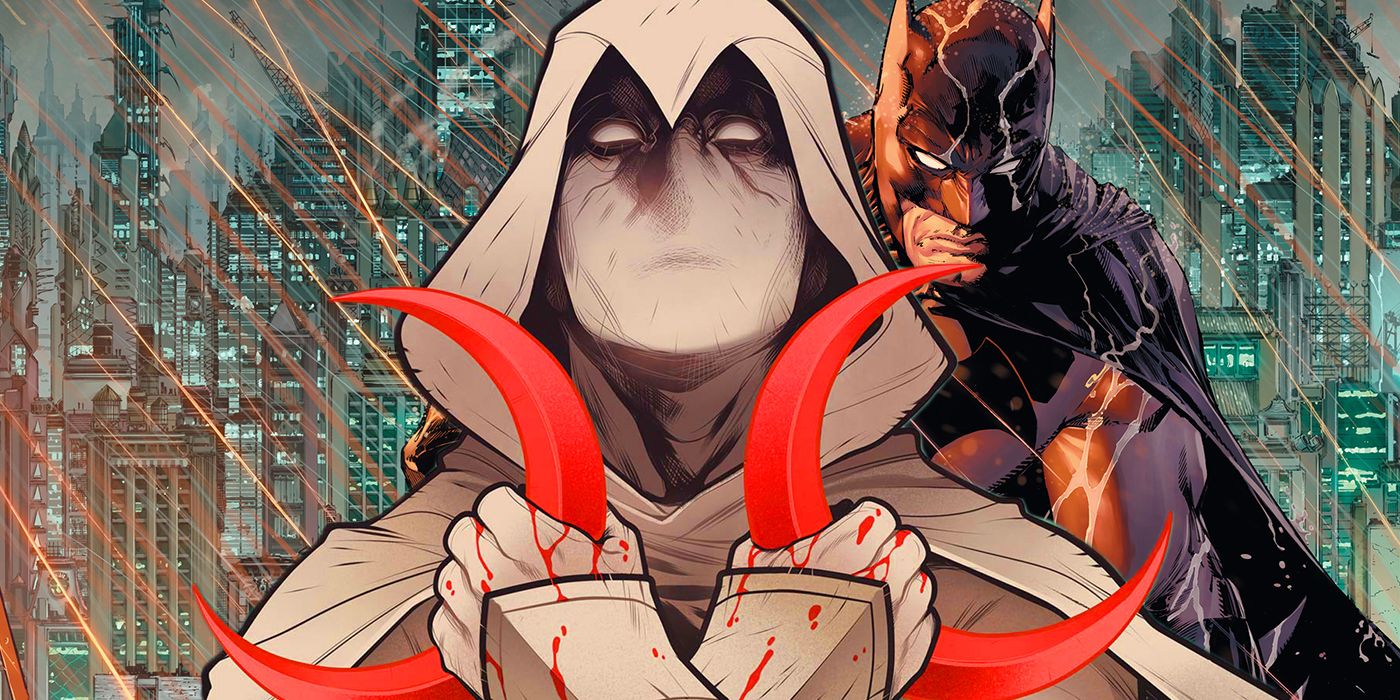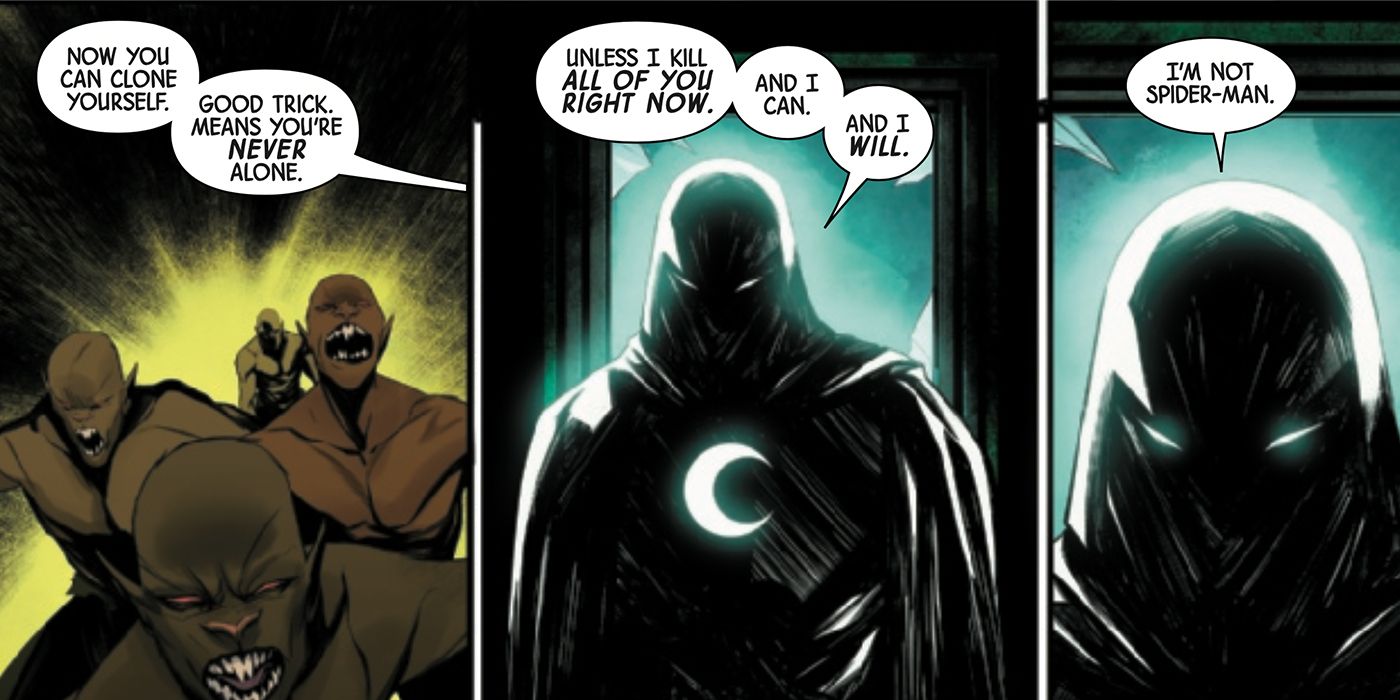Warning: spoilers for Moon Knight #1 ahead!
Moon Knight is one of Marvel Comics' darkest heroes, and his nocturnal theatrics are often erroneously compared to that of Batman from DC Comics. In his former life, Marc Spector was a ruthless mercenary who was killed on an assignment in Egypt. Brought back to life by the ancient Egyptian god, Khonshu, Spector gained superhuman abilities to aid in his task of protecting all nighttime travelers in his home of New York City. This has not been easy though, as Spector has struggled with dissociative identity disorder as a result of being Moon Knight. While Moon Knight cuts an imposing silhouette like Batman, there are very clear ideological differences that separate the goals of both characters.
This was explored in Moon Knight #1, written by Jed MacKay, with art by Alessandro Cappuccio, colors by Rachelle Rosenberg, and letters by VC's Cory Petit, which delved into the core of the character's mythos. Answering a call about a group of monsters threatening elderly residents in an apartment building, Moon Knight discovers that it has been overrun by a group of Vermin, or humanoid rats from Spider-Man's rogues gallery, that can clone themselves. Seeing that they can now multiply their numbers, he tells them that they can either get themselves killed by him, or abandon the building and its residents. For Moon Knight, killing the Vermin is inconsequential, because as he says, "I'm not Spider-Man. I'm Moon Knight. And I don't die."
Previously, Moon Knight had been considered to be Marvel's version of Batman because Marc Spector is also a wealthy man like Bruce Wayne, whose money can fund his operations as a vigilante. Moreover, the fact that Moon Knight and Batman excel in hand-to-hand combat shows that they have a comparable fight vocabulary. Lastly, because both characters are most active at night, where they face the dark underbellies of their cities, they play similar roles in their respective universes as heroes who play sharply against a sunny superhero image.
This scene from Moon Knight #1 carefully differentiates the character from Batman on several levels. While Batman's activities as a vigilante are defined by his "no kill" rule, Moon Knight has no such restriction. Bruce Wayne's mortality has also been a key component to his character ever since the New-52 established Batman as an idea, instead of a person. Because Moon Knight cannot die due to the god Khonshu's influence, he has a much different relationship to his work as a vigilante than Batman does. Lastly, Moon Knight is fundamentally a supernatural character who bears the hallmarks of Marvel's flawed heroes who sprung up in the early to mid-1970s, as opposed to being a traumatized billionaire like Bruce Wayne. All together, these differences give Moon Knight far more freedom as a vigilante than Batman will ever have, due to his moral code.
Moon Knight will not hesitate to kill his enemies, and this fact is emblematic of the difference between him and Batman. Batman chooses to not kill his enemies, because his early life was shaped by an act of horrific violence that could have put him on a path of murderous vengeance. His decision to not murder his foes speaks to how he envisions a better future for Gotham. On the other hand, Moon Knight isn't guided by an impulse to save his city from itself. He simply sees all night travelers as those under his protection, and if one of them is murdered, then he won't hesitate to do the same against their killers.
Batman and Moon Knight have completely different objectives as superheroes. While Batman is concerned with freeing Gotham from the yoke of crime and corruption, Moon Knight has a much more macro perspective of how harm can come to people during the nighttime. Batman stories have always had a strong crime bent to them, looking at the deep seated nature of urban corruption, which Moon Knight comics lack. Instead of being Marvel's Batman, Moon Knight should be understood as a supernatural hero bound by no human laws, physical or moral.


